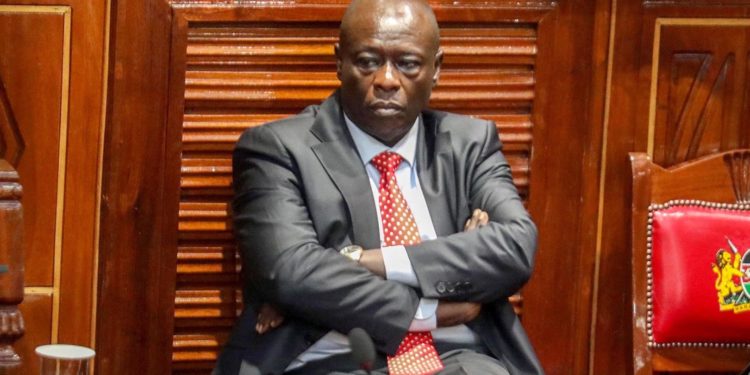Deputy President Rigathi Gachagua faced a significant legal blow after the High Court declined to recuse a three-judge panel from handling cases challenging the swearing-in of Prof. Kindiki Kithure as his replacement. The court ruled that claims of bias lacked sufficient grounds, allowing the proceedings to move forward.
The decision, delivered by Justice Eric Ogola, rejected Gachagua’s application to remove the judges, citing that the case did not meet the necessary threshold for bias or impartiality. “The application for recusal is hereby disallowed, as it failed to meet the required criteria,” Justice Ogola said. The ruling was based on four key factors: the constitutional principle of recusal, impartiality as a legitimate ground, the threshold of bias required for disqualification, and whether the applications held merit.
Gachagua’s legal team had argued that certain connections between the judges and political figures involved in the case called into question their impartiality. Notably, his lawyer Kibe Mungai pointed to the presence of Senate Speaker Amason Kingi at the wedding of one of the judges, Justice Antony Mrima, as a potential conflict of interest. Meanwhile, another advocate, Ndegwa Njiru, claimed that Justice Ogola’s wife held an appointment from President William Ruto, suggesting this could compromise his objectivity.
Despite these assertions, the court remained firm. In his defense, Advocate Githu Muigai, representing the Attorney General, argued that such associations are common and do not constitute a legal basis for recusal. “I am shocked that independent engagements can be grounds for recusal,” Muigai remarked during the proceedings.
Veteran lawyer John Khaminwa, representing one of the petitioners, urged the judges to step down for the sake of public confidence, stating: “If anyone is uncomfortable with you, please walk out. You are not the only judges who can preside over this matter.”
In dismissing the claims, the court also allowed both Gachagua’s lawyers and the respondents to file and serve amended petitions within five days. The next hearing is scheduled for October 29, where the court will deliberate on the conservatory orders filed in the case.














